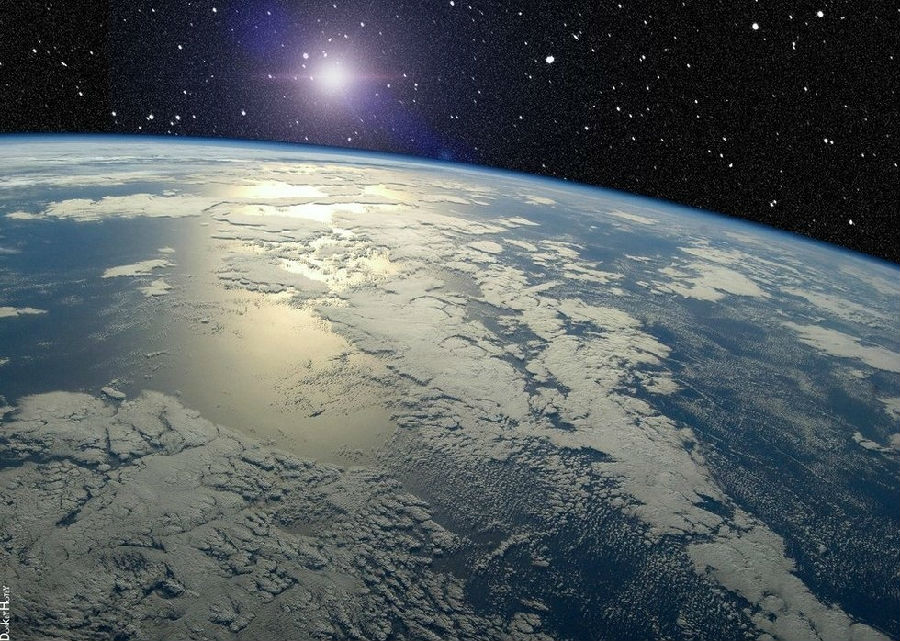(单词翻译:单击)
Other scientists besides Kelvin turned their minds to the problem and came up with results that only deepened the uncertainty. Samuel Haughton, a respected geologist at Trinity College in Dublin, announced an estimated age for the Earth of 2,300 million years—way beyond anything anybody else was suggesting. When this was drawn to his attention, he recalculated using the same data and put the figure at 153 million years. John Joly, also of Trinity, decided to give Edmond Halley's ocean salts idea a whirl, but his method was based on so many faulty assumptions that he was hopelessly adrift. He calculated that the Earth was 89 million years old—an age that fit neatly enough with Kelvin's assumptions but unfortunately not with reality.
除开尔文以外,别的科学家也把注意力转向这个问题,得出的结果只是加深了那种不确定性。都柏林的三一学院有一位受人尊敬的地质学家,名叫塞缪尔·霍顿。他宣称,地球的年龄约为23亿年——大大超出了任何人的看法。他注意到了这个情况,用同样的数据重新算了一遍,得出的数字是1.53亿年。也是三一学院的约翰·乔利决定试一试埃德蒙·哈雷提出的海盐测算法,但这种方法是以许多不完善的假设为基础的,他只好顺水推舟地干了一下。他得出的结果是:地球的年龄是8900万年——这个年龄与开尔文的假设完全吻合,不幸的是与现实根本不符。

Such was the confusion that by the close of the nineteenth century, depending on which text you consulted, you could learn that the number of years that stood between us and the dawn of complex life in the Cambrian period was 3 million, 18 million, 600 million, 794 million, or 2.4 billion—or some other number within that range. As late as 1910, one of the most respected estimates, by the American George Becker, put the Earth's age at perhaps as little as 55 million years.
情况如此混乱,到19世纪末,你可以获知——取决于你查的是哪种资料——我们距离开始出现复杂生命的寒武纪的年数是300万年、1800万年、6亿年、7.94亿年或24亿年——或者是这个范围里其他数量的年。直到1910年,美国人乔治·贝克尔才作出了一个最受人尊重的估计,他认为地球的年龄也许不超过5500万年。
Just when matters seemed most intractably confused, along came another extraordinary figure with a novel approach. He was a bluff and brilliant New Zealand farm boy named Ernest Rutherford, and he produced pretty well irrefutable evidence that the Earth was at least many hundreds of millions of years old, probably rather more.
正当事情似乎乱作一团的时候,出了另一位杰出人物,有了一种崭新的方法。他是个直率而又聪明的新西兰农家孩子,名叫欧内斯特·卢瑟福。他拿出了无可辩驳的证据:地球至少已经存在许多亿年,很可能还更古老。
Remarkably, his evidence was based on alchemy—natural, spontaneous, scientifically credible, and wholly non-occult, but alchemy nonetheless. Newton, it turned out, had not been so wrong after all. And exactly how that came to be is of course another story.
值得注意的是,他的证据是以炼金术为基础的——天然,自发,科学上信得过,毫不神秘,尽管是炼金术。结果证明,牛顿毕竟没有大错。那种方法到底是怎么知道的,当然要等下一章来叙述。


